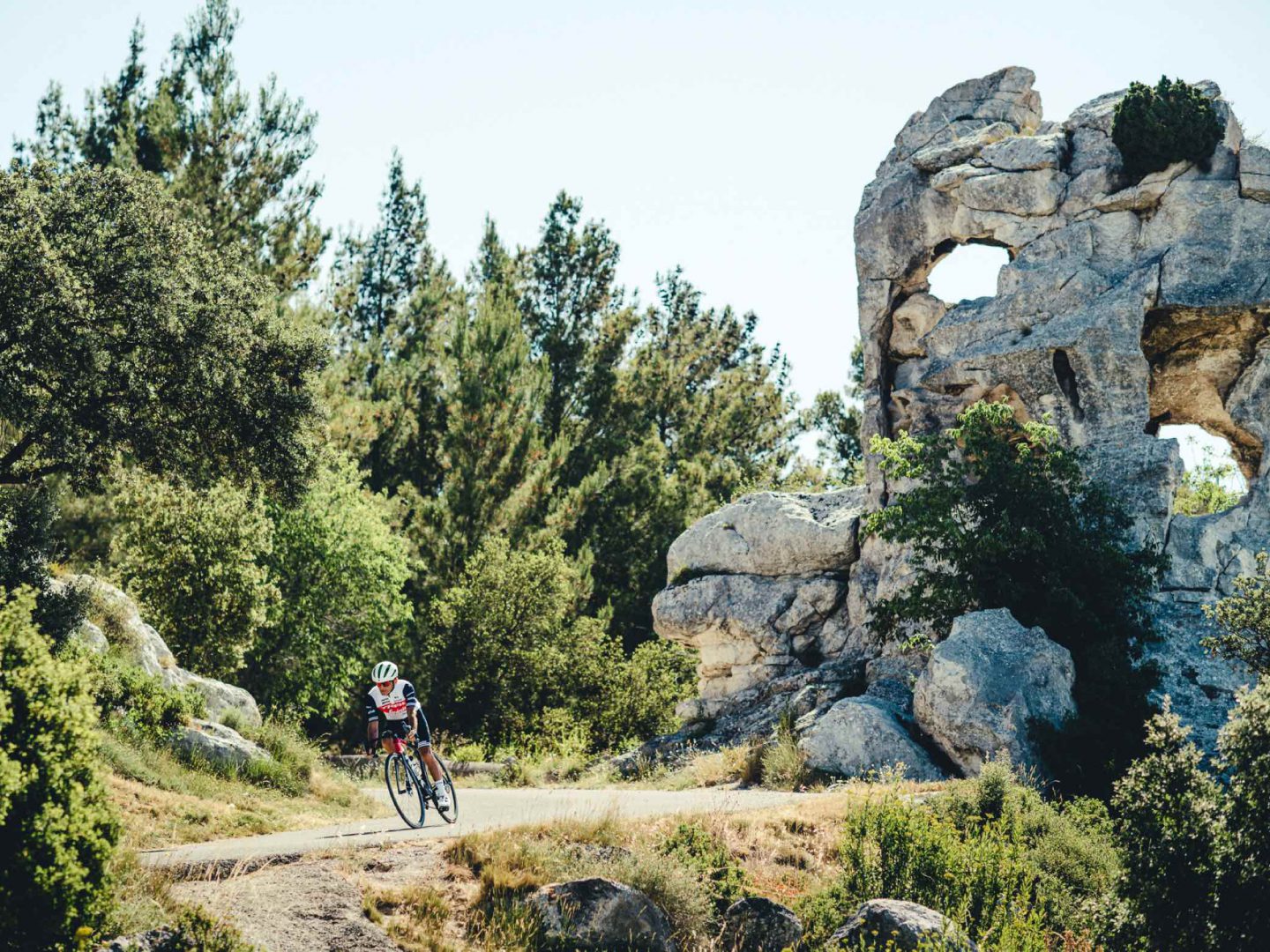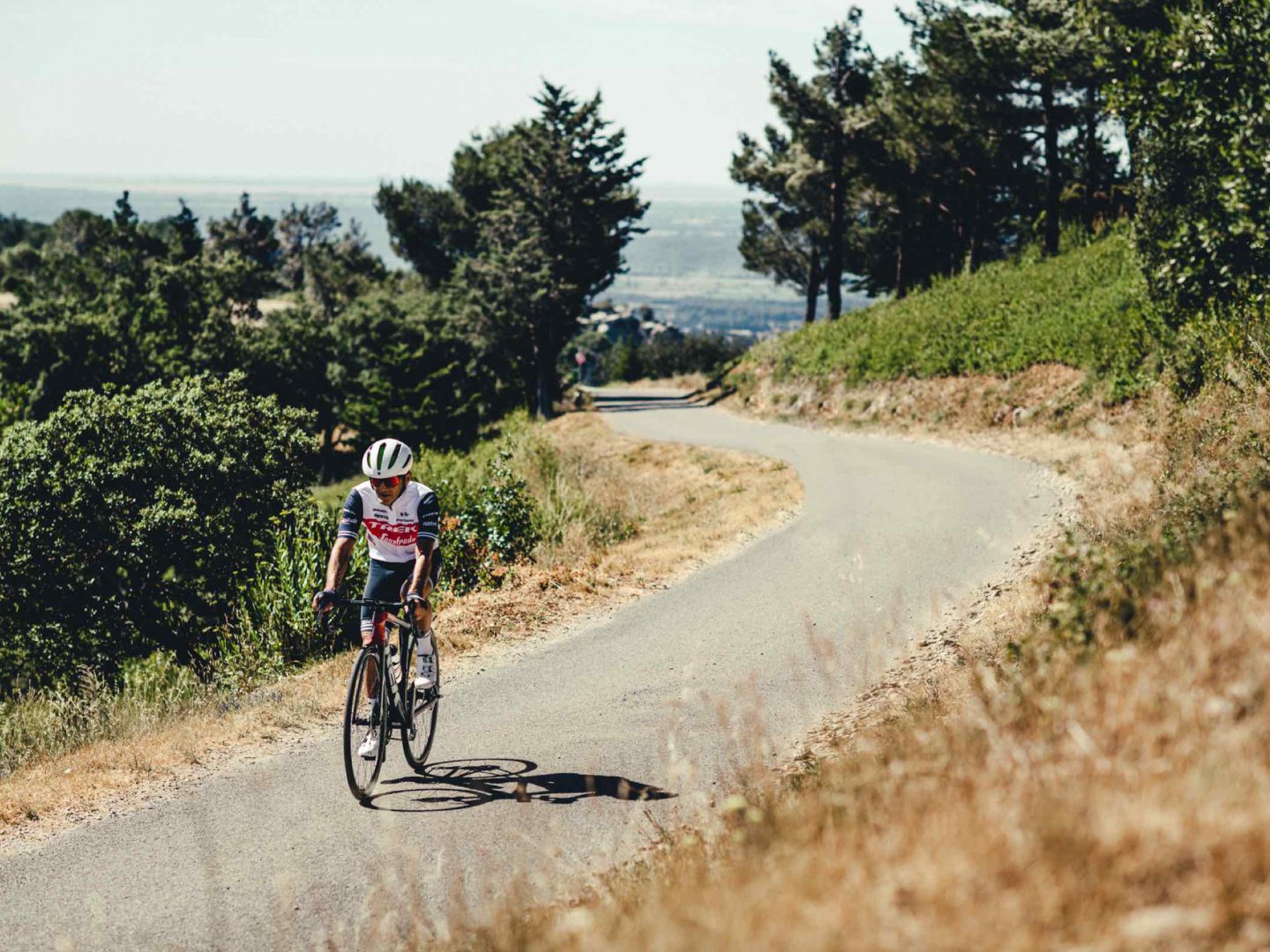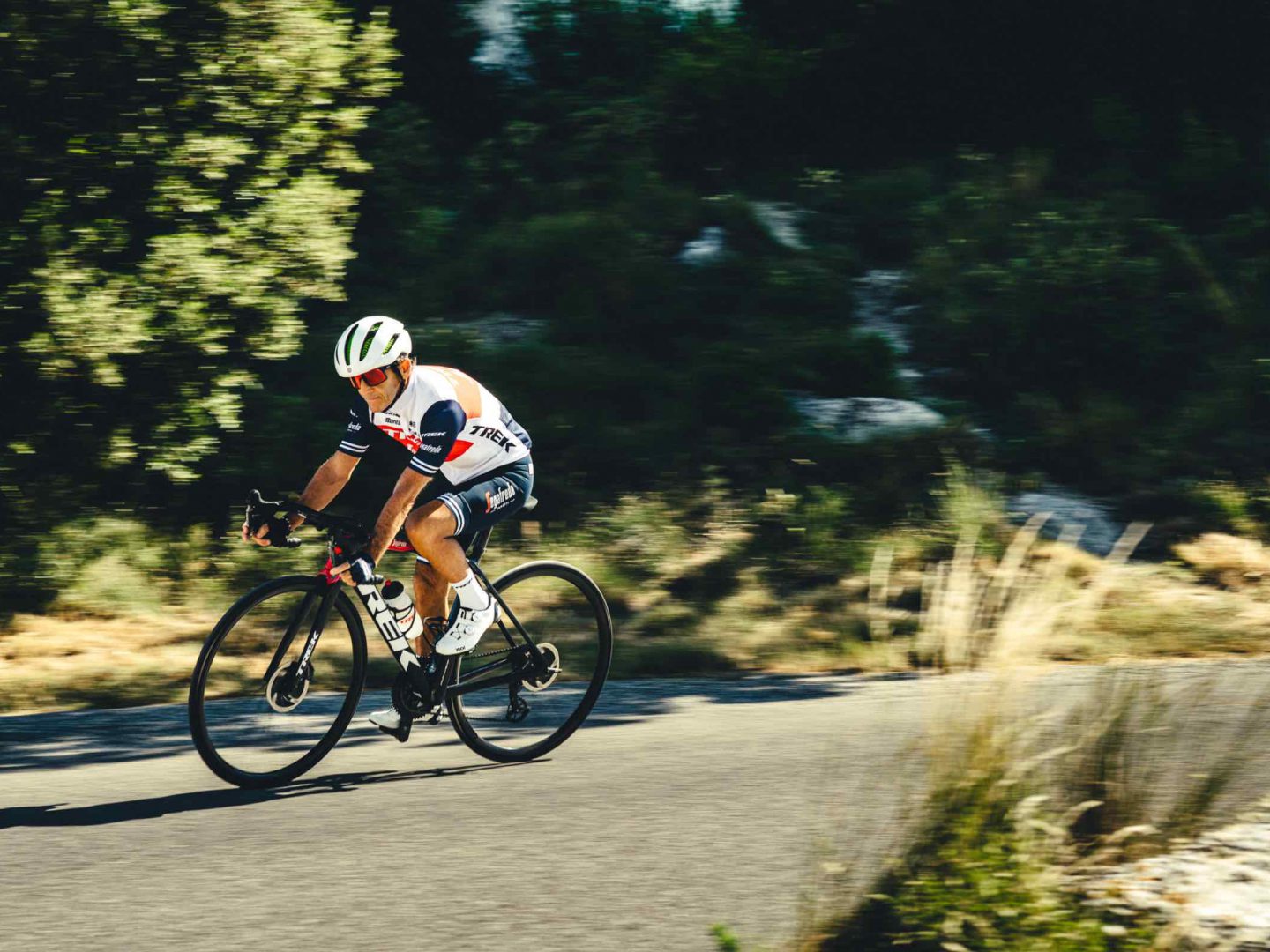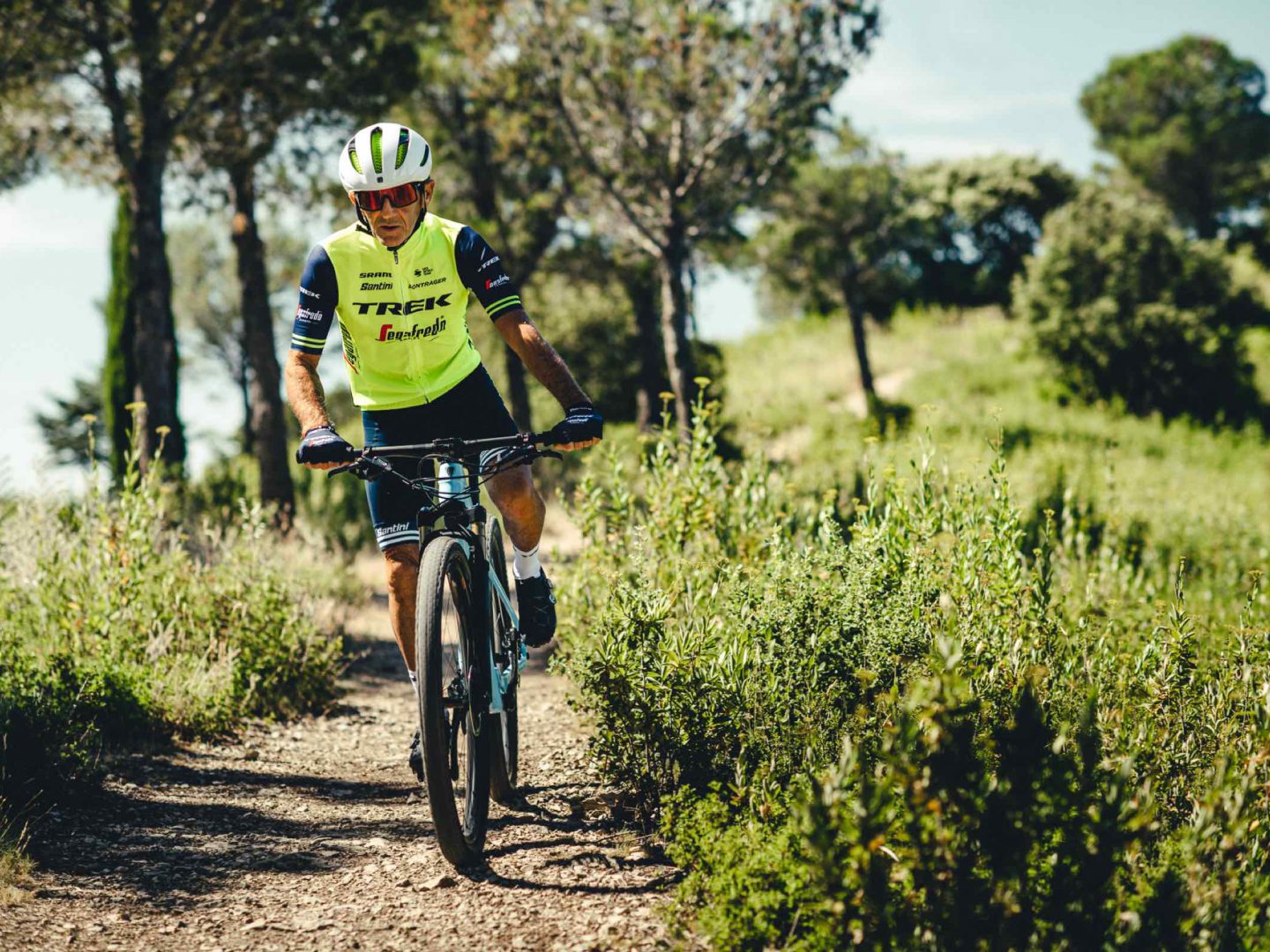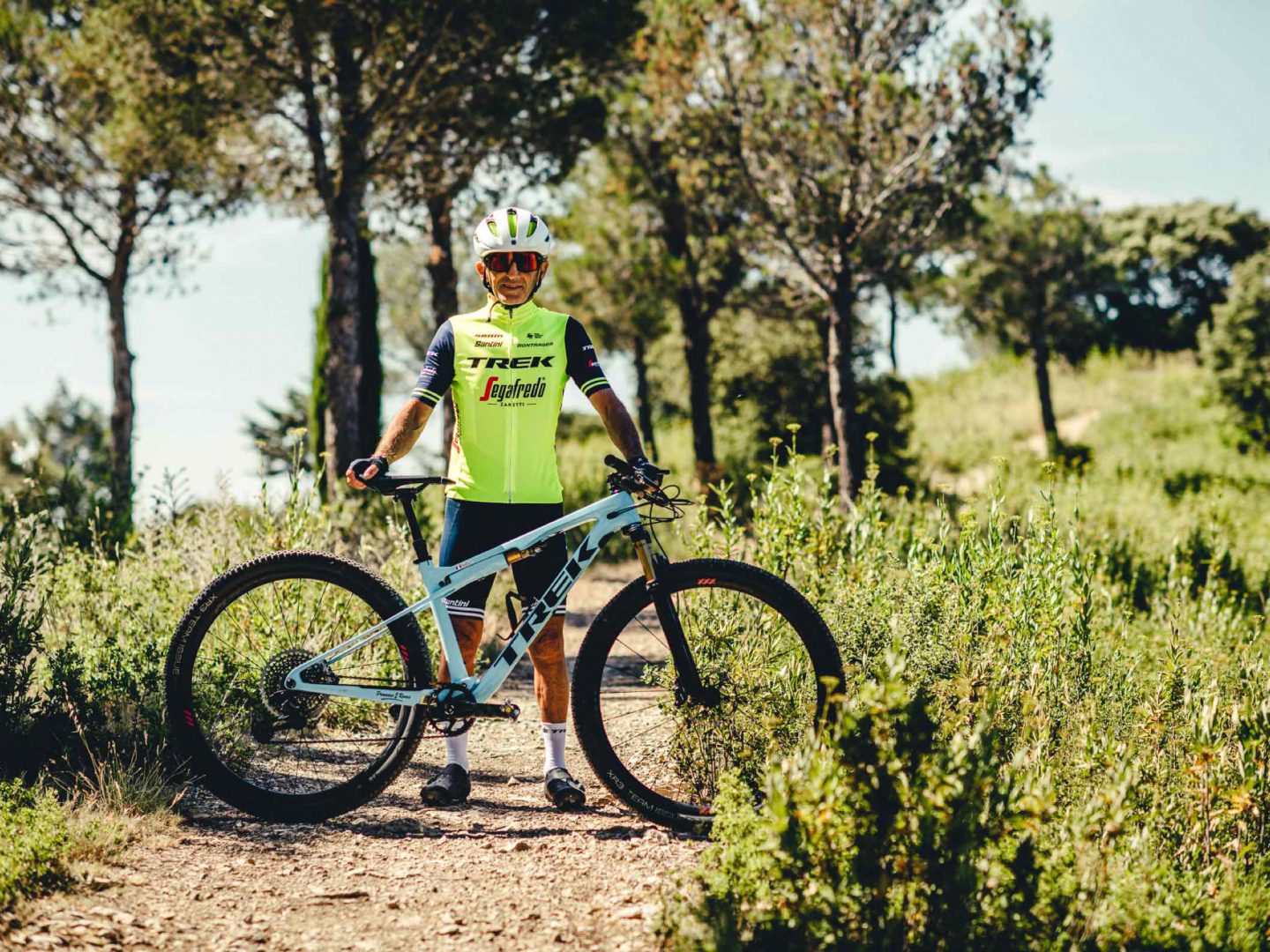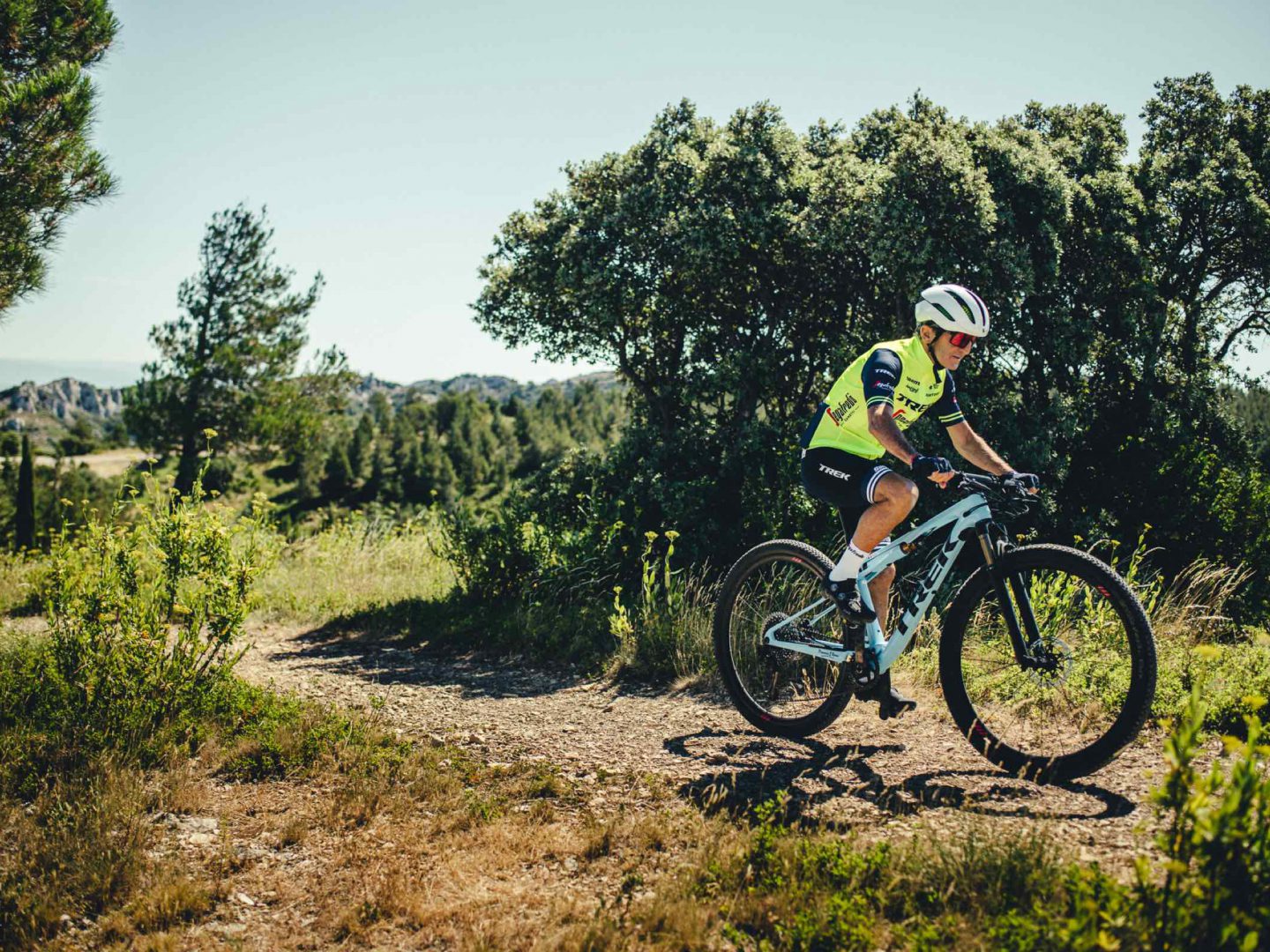A true legend, Alain Prost is also a cycling enthusiast Alain Prost a true legend of Formula 1 since the 1980s tells us all about his passion for cycling and especially the equipment! Known as "the professor" throughout his motorsport career, this nickname has followed him into the world of cycling.
Alain, you were the great French Formula 1 champion of the 80s and 90s, and you are still very active in this sport today through various projects. Can you tell us more?
I’ve never really strayed far from the automotive world. Today, I am focussing on my roles as ambassador of Renault Alpin and Executive Director at Alpin Formula 1. I haven’t worn a lot of hats over the years. It’s a fascinating world that is constantly evolving, and it’s always interesting to stay in the same environment with lots of experience. In addition to Formula 1, I’ve also managed a Formula E team.
Alain, you are well known for your track record in motorsports – you are a born competitor. Yet there is a sport that has been close to your heart for many years and that is cycling. Why does it hold such a special place and since when?
It was in 1992 during my sabbatical year that I started to ride, almost by accident. I have always been passionate about sport in general, I ran a lot to prepare myself physically for previous seasons, but I started to suffer from knee pain. As you may know, running can sometimes put a lot of strain on the lower body.
It was on the advice of my osteopath, and friend, that I reluctantly went with him to buy my first road bike which, by the way, was a trek 5500, one of the first to have a single-piece carbon fibre frame. It was a beautiful frame that I thought was technically incredible at the time.
Eventually, a few months later, I threw myself at the Etape du Tour with friends. After about fifteen events, cycling has continued to be my favourite sport since it is sociable and helps me to stay in shape. I should add that it is a pretty magical sport as you can do it fairly seriously and still reach a good level, yet it places less strain on the body than running.
Did cycling play a part in your physical preparation during your driving career?
Not really as I only really started cycling towards the end of my career. However, cycling did allow me to get into shape quickly for my last year of competition in F1. Also, for me, cycling is like therapy, as there is obviously the physical aspect, but more importantly there is the mental aspect. It feels good, and that’s why I find cycling magical.
It also applies to day-to-day life. When you are worried about something, you can go for a bike ride and you don’t think about it anymore, or the problems seem less important. This sport is great as it makes you take a step back from what’s going on in your life.
In the paddocks you were known as “the professor”, where did this nickname come from?
It’s a great anecdote that dates back to the 1983 championship. At that time, I was working with Michelin engineers and we were trying to find a solution to a tyre wear problem. So I started to mix rubber of different hardnesses on the front, back and sides against the advice of the engineers. But eventually it worked, and that’s how the nickname came about. I was a bit embarrassed at first because it seemed pretentious, but the nickname has stuck for almost 40 years and now I’m quite proud of it. I see it as a compliment.
I must also say that I have always had a sensibility for equipment, I like to analyse, test and above all give my opinion to try to improve what has been done before. I believe that this is the key to success.
In your opinion, does equipment have an important part to play in performance?
When equipment is involved, I feel that many factors come into play. Of course there is the psychological aspect, but more importantly there is the technical aspect. When I started cycling, I would hear everyone around me saying “there’s no such thing as a bad bike, it’s all in the legs” which I totally disagree with. Not every bike is suitable for every person – in my opinion it depends on experience, morphology and power.
When you have the right equipment, the right position that brings you comfort and ease, these factors will automatically lead to better performance and enjoyment on your bike. It was the same in Formula 1. I would ask my mechanics to clean the car thoroughly every time I returned to the garage because I needed to get into a car that inspired me.
Are motorsport and cycling the same in this regard?
Completely! Of course, we can’t compare F1 and cycling in terms of technology, but I’d say that the philosophy is the same. Especially if we look at the incredible technological progress made in the world of cycling in recent years. Improvements can always be made but fortunately the regulations of international bodies provide a framework otherwise the possibilities would be endless.
Would you say that your cycling is motivated by performance today?
Cycling and Formula 1 have never been the same thing for me. I started cycling at 38 so I didn’t have the same approach. Although a competitor at heart, my relationship with performance is not the same. I have competed in the FSGT, UFFOLEP, FFC races, French championships and master world championships, but I always try to put the idea of performance into perspective because what matters most is the joy I feel when taking part. It’s the joy of competition.
I should point out that the level of amateur cycling, even at my age, is extremely high. There are more and more people who have time to ride, former pros or people who follow a specific training programme that they stick to religiously.
Everyone rides really well, and I can see a big difference between cycling events in the 90s and now where it’s a race from the start.
Which Trek bikes have you ridden? What bikes do you ride at the moment? What is your favourite model and why?
I haven’t had many Trek bikes over years, but I do still have my first bike which was a blue Trek 5500. I recently rode the Trek Madone SLR but right now I’m exclusively riding the latest Émonda SLR, which I think is an incredible bike because of its versatility.
I’ve worked a lot on my position by making adjustments to the handlebars and the saddle, because it is important to have a bike on which I feel perfectly seated. I’m pretty demanding and I think I have a good awareness of the different sensations I might have when testing a new component or new position.
In terms of MTB, I ride a Trek Supercaliber. It’s just like the Émonda – light, precise, and it can go anywhere. This bike is ideal for the trails of Provence.
Who provides you with technical support for your cycling?
A few years ago I had a lot of back problems. I couldn’t push down on the pedals anymore and when faced with this type of pain it can take it’s toll on your mental health. I even followed the advice of doctors who recommended that I stop everything for 3 weeks. I would never advise anyone to do this because it was even more painful when I started riding again and mentally it was tough.
One day, whilst I was at my holiday home in Provence, I ran into someone called Eric while out on a club ride. He was the owner of a bike shop called Provence 2 roues in Saint-Remy-de-Provence.
I spoke to him about my back problems and together we started to consider different factors such as my bike, position and adjustments. He was incredibly understanding and interested in my problems. Eric was used to working with pro riders and it was reassuring to know that he had lots of experience with this kind of problem. Finally, after many postural studies and several months of work, my back pain disappeared.
We definitely make a good team. I love working with people who are as precise as he is, who I can talk to easily and who are good listeners. I know that there’s always room for improvement, and that’s the good thing about cycling. The learning never stops.
Do you have personal cycling objectives and/or challenges for the near future?
I’ve just come through a bit of a difficult period with some knee issues and fatigue, but I do like to focus on one goal and this year it will be the world championships in October. I am thinking of doing a few FFC races and a few cycling events to prepare for the qualification which will take place in Switzerland.
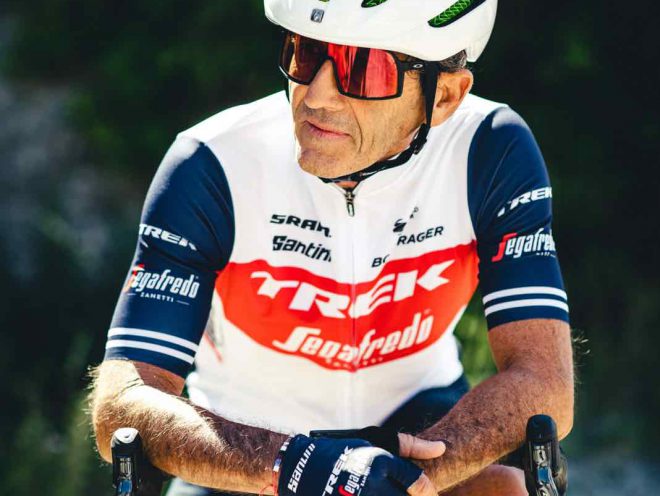
Photo : @alecubino
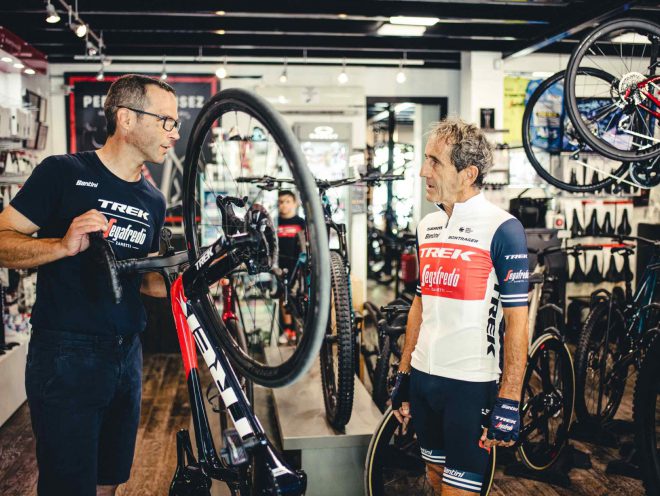
Photo : @alecubino
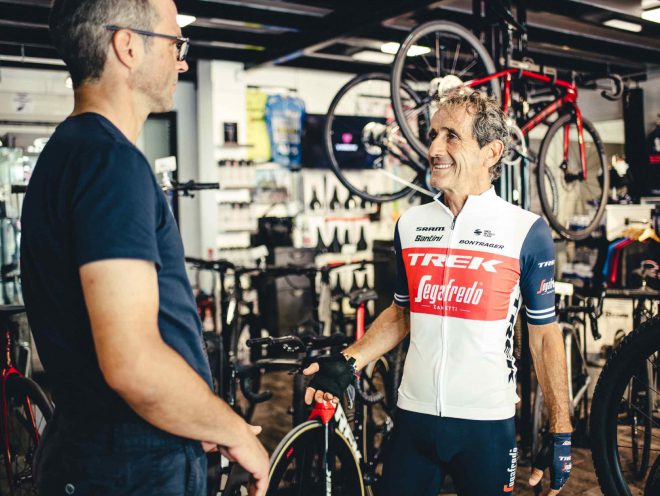
Photo : @alecubino
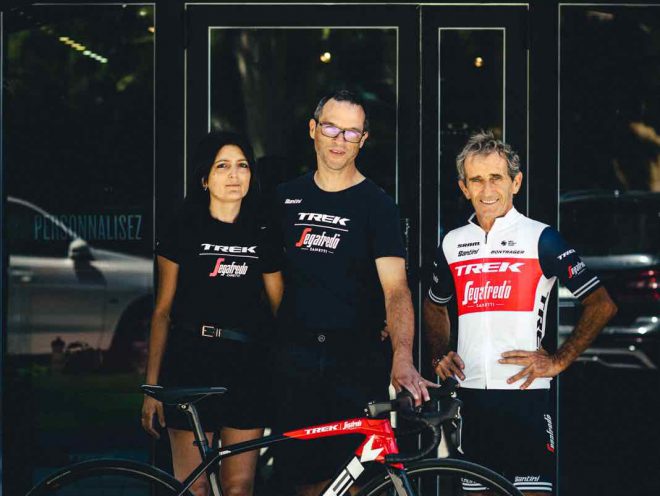
Photo : @alecubino

About the Author: Trek
Notre mission : nous ne construisons que des produits que nous aimons, nous offrons une hospitalité incroyable à nos clients et nous changeons le monde en faisant monter plus de gens à vélo.

